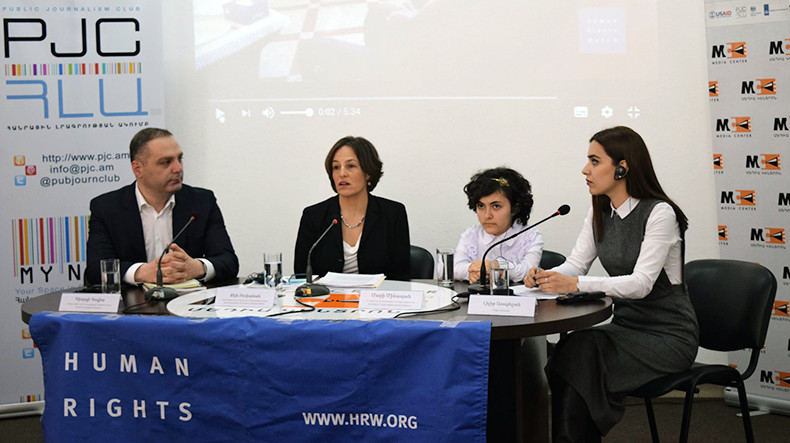
Human Rights Watch voices concern for lack of access to quality inclusive education for children with disabilities
Children with disabilities do not receive quality inclusive education in Armenia, some of them do not attend schools, the Human Rights Watch said in a report released today.
The 102-page report, “‘When Will I Get to Go Home?’ Abuses and Discrimination against Children in Institutions and Lack of Access to Quality Inclusive Education in Armenia”, documents how thousands of children in Armenia live in orphanages, residential special schools for children with disabilities, and other institutions. They often live there for years, separated from their families. More than 90 percent of children in residential institutions in Armenia have at least one living parent. Human Rights Watch also found that the Armenian government is not doing enough to ensure quality, inclusive education for all children. Inclusive education involves children with disabilities studying in their community schools with reasonable support for academic and other achievement.
Presenting the report in Yerevan, Jane Buchanan, associate Europe and Central Asia director at Human Rights Watch, informed that they visited five state-run orphanages and ten state-run schools, including six special schools and four mainstream schools, and interviews with 173 people, in eight cities in Armenia that included directors of orphanages, special schools, and mainstream schools, as well as social workers, doctors, teachers, psychologists, caregivers, and other staff in institutions.
“Provision of a quality education for all children, regardless of disability, in community schools is an essential component of transformation of the system whereby children with disabilities have been educated in so-called special schools for children with disabilities, in isolation at home because of barriers to accessing schools, or not at all. Without accessible, quality education in the community, children with disabilities are at risk of continued isolation in residential institutions,” reads the report.
The authors of the report suggest that the government of Armenia has made some bold commitments to reduce the number of children in institutions, but needs to make sure those promises are backed by serious, sustained action. However, the government should realize these commitments fully and sustainably, and in such a way that fully respects rights and meets the needs of families and children.
“All children have the right to grow up in a family, and government and donor resources should support families and children, not large institutions,” stressed Jane Buchanan.
Newsfeed
Videos






























